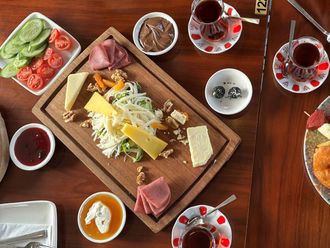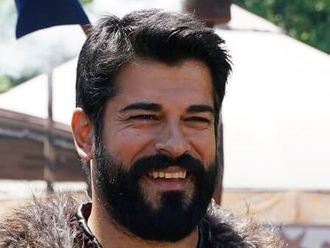New hotels spring up every other day in the Gulf with Dubai, home to some of the most magnificent establishments in the world, leading the way. Spare a thought for Occupied Jerusalem where even contemplating to build a new hotel has been virtually impossible since 1967.
Nevertheless, the newly renovated St George Landmark Hotel is not only the fruit of determination against great odds but a creative way to keep a rapidly declining city and its people’s hopes alive.
St George Landmark Hotel was built in 1965 and inaugurated by King Hussain of Jordan. It followed on the heels of the pilgrimage of Pope Paul VI to the city which then stirred a tourist revival. “Although Jerusalem had many pilgrim houses and hostels, it was the first ‘five-star’ hotel between the two banks of Jordanian jurisdiction,” explains Ihab Khatib, a recent Harvard MBA graduate who returned in 2010 to make a difference to his birthplace.
He headed the team that renovated the property, thanks to PADICO — the Palestinian Investment Company, the only shareholding entity with a presence in Occupied East Jerusalem. All other businesses are family-owned initiatives and this is PADICO’s second venture, the first being the renovation of a previously “closed down” cinema into an attractive Convention Centre.
Ihab points out: “Besides being closed down for almost seven months after the 1967 War, the hotel lost half its business during the First Intifada. After the Second Intifada it was forced to shut down half its rooms. PADICO negotiated with the owners of the property and signed a long term lease agreement for exclusive development and operation.”
Occupied Jerusalem is considered the “undivided capital” of Israelis and the “future capital” of Palestinians. While this dispute rages on, for a developer to obtain a building permit for a new project, with all the requisite documentation, would take three to five years, if lucky. To circumvent the impossible, Palestinians are forced to only renovate, but even that has obstacles — with limited access to finance and the declining availability of property.
Ihab seems satisfied with the end result of his labour. He smiles and says: “For me, this was important, as I have never worked in [Occupied] Jerusalem and returning from Harvard, I thought, why not. I decided that it was something important to do and to leave a mark in [Occupied] East Jerusalem”.
After signing the lease agreement and upon taking the property, the PADICO management had to deal with various options; namely, did they wish to replicate other hotels in the city, or did they want to upgrade it to its past glory? In the end, they opted to create a place where both locals and internationals could enjoy the facilities in keeping with modern hotel trends.
They reduced the number of rooms from 144 to 133, creating larger rooms for businesspersons and international travellers. But they added a new twist by knocking down eight rooms to build a rooftop restaurant overlooking the Old City of Occupied Jerusalem on one wing. The other side of the hotel was used to build a rooftop swimming pool with the most unique view of the holy city.
Ihab states, “this makes St George Landmark Hotel one of a kind in Occupied Jerusalem.”
Efforts such as this, of refurbishing and restoring, albeit small, have two payoffs — one that creates jobs and the other more important one that has had a ripple effect in the city. It restores hope and provides an impetus to others who are now doing the same, so competition and economic activity creates a revitalisation of the stagnant and decaying city.
Ihab adds, “Previously people walked past this hotel, it was dark and it created sadness and negativity. Today it is vibrant and alive, busy and very different. This hotel has had a multifactor effect in that it shows that [Occupied] East Jerusalem is still alive and there is light and hope at the end of a long tunnel.”
Young Palestinians such as Ihab, who have a world of opportunity with internationally recognised qualifications, have preferred to come home and work to preserve what is left of Occupied Jerusalem. They plead with all who stand in solidarity with them to support their efforts.
Ihab concludes by saying, “I am concerned about the fatwas issued by Arab scholars who call on Muslims to stay away from Occupied Jerusalem and I dread the day when, with the steady ‘Judaisation’ of Occupied Jerusalem, there will be nothing left!”
Walking around the hotel, one gets a sense of Jordanian-Palestinian ties. The mural in the meeting room depicts Petra, Sebastya, Jerusalem, Jerash, Qusayr ‘Amra and Bethlehem, the major historic sights on both sides of the Jordan River, without frontiers and as one country; a perspective which Palestinians of a past generation were born into and one that an “Occupied” generation is reminded of.
This theme is reiterated in the stunning olive tree, almost bonsai, which stands inside the lobby area, a testimony to the unity of both peoples whose history, like the olive tree, strikes roots deep in the holy land of Christianity and Islam.
The newly renovated St George Landmark Hotel, in the centre of historical Jerusalem, not only offers guests a contemporary and luxurious retreat but also a distinctive perspective of steadfastness in the ongoing struggle.
Rafique Gangat, author of Ye Shall Bowl on Grass, is based in Occupied Jerusalem.












